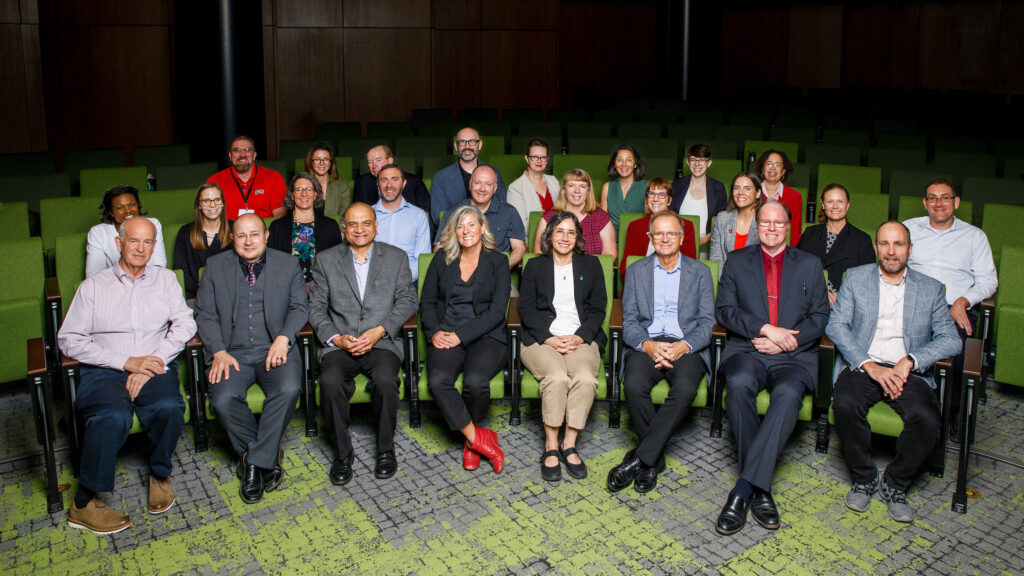University-Industry Partnerships are a driving force in innovation. There are many notable examples, a recent one worth highlighting is the Southwest Sustainability Innovation Engine (SWSIE), launched last year to foster regional economic development and technological innovation in the Southwest U.S., including Arizona, Nevada, and Utah. SWSIE is part of the National Science Foundation’s Regional Innovation Engine program to support startups transitioning from prototype to commercialization, aiming to address pressing regional challenges such as water scarcity, energy security, and air quality.
The NSF is funding SWSIE’s initial development and growth with an initial $15 million. The engine can be renewed for up to 10 years with $160 million in funding available for each Regional Engine. What makes this special: NSF Engines program leverages existing partnerships and coordinate efforts among researchers – many from Universities – as well as industry and government to accelerate the pace of sustainability innovation and prepare a regional workforce, with potential to drive economic growth and enhance national security in critical industries.
Regional Innovation in Action
Dr. Brenda Bowen, the University of Utah Director of SWSIE, shared comments in an article highlighted @theU last fall. She mentioned what the NSF has done with the Engines Program is phenomenal and is unlike any previous NSF-funded initiative.

“They are enabling new collaborations and new investments in ways and at scales that just haven’t happened,” Bowen said. “And this idea that with this critical investment in key places, we can really tip the balance and make some huge changes is vital.”
A notable example is GlycoSurf, a Salt Lake City-based company founded by researchers from the University of Arizona. GlycoSurf’s technology focuses on creating biodegradable chemicals for various applications, including mineral reclamation and water purification. The company’s innovation grant will help advance its work in using bio-based extractants to recover valuable minerals, including those used in semiconductors, which could benefit U.S. tech manufacturing and reduce reliance on foreign sources.
Another significant Utah-based startup receiving SWSIE funding is Aeonix, a Salt Lake City company focused on developing advanced lithium-metal batteries for electrified transportation. As the demand for more efficient, energy-dense batteries increases, Aeonix’s innovations in anode-free lithium batteries could fill gaps in the battery supply chain, especially for aviation applications. The SWSIE funding will help accelerate their product testing and manufacturing.
Water From Thin Air
SWSIE also funded WAVR Technologies, which operates in Nevada but has applications that extend to Utah, Arizona, and other arid regions. WAVR focuses on atmospheric water harvesting, a crucial innovation in water-scarce regions. By using a novel distillation process, WAVR aims to provide secure freshwater supplies, even in areas with low humidity, and reduce dependence on over-exploited water sources like the Colorado River, which serves Utah, Nevada, and Arizona.
Utah’s role in this ecosystem is strengthened not only by companies like GlycoSurf and Aeonix but also by the involvement of the University of Utah, which supports research and innovation in various sectors. The synergy between academia, government, and industry partners in the region aims to position the Southwest as a leader in sustainability and technological advancements.
“This is work that needs to happen,” added Bowen, “and this award will allow us to align our efforts to maximize the positive impacts across the region.”
By investing in these early-stage technologies, SWSIE not only supports individual startups but also contributes to the broader economic and technological development of the Southwest U.S. The region is seen as well-positioned to lead in resilience, innovation, and sustainability, ensuring a prosperous future for its industries and communities. This initiative is a key step in fostering long-term growth and helping to solve some of the most urgent challenges facing the region and beyond.
Learn more about SWSIE – it’s led by ASU, more information available here.
